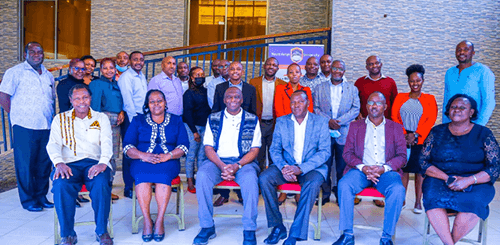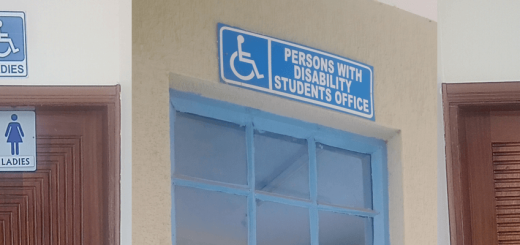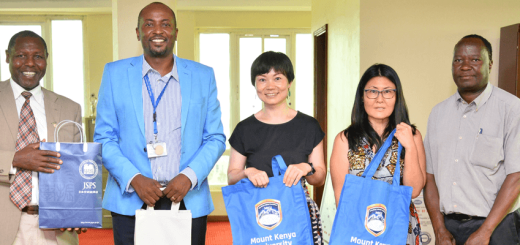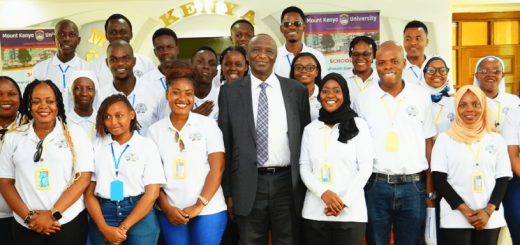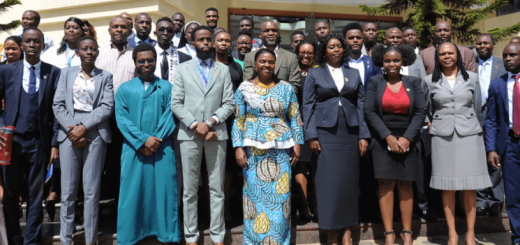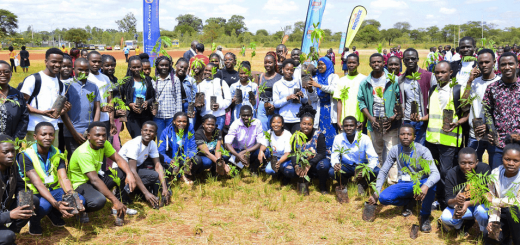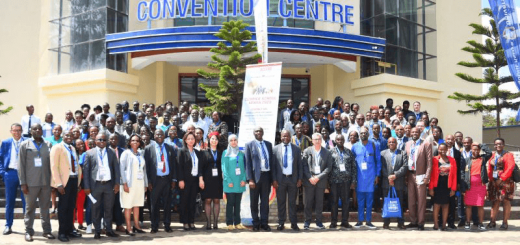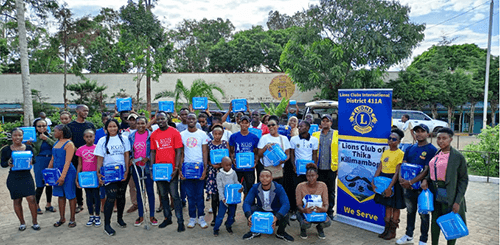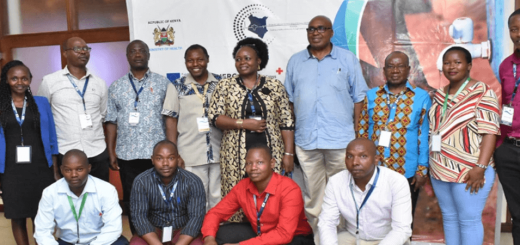MKU taking the lead in fighting the AMR menace
Antimicrobial resistance (AMR) is one of the pressing public health concerns globally. Patients with multidrug resistant infections always require longer hospital stays, more expensive medication and are likely to die as a result of an infection.
Research has shown that antimicrobial stewardship programmes, (ASPs), which are coordinated programmes that promote the appropriate use of antimicrobials (including antibiotics), improve patient outcomes, reduce microbial resistance, and decrease the spread of infections caused by multidrug-resistant organisms) are vital in fighting antimicrobial resistance menace.
The National Research Fund (NRF) funded project namely combating antimicrobial resistance using enhanced guidelines and stewardship is using implementation science approach to fight AMR in six selected county hospitals in Kenya. The project whose acronym is CRUSH: AMR endeavors to adapt contextualized guidelines for antibiotic use for common infections, set up antibiotic steward committees (ASCs) in 6 county hospitals and train the ASC members to perform their mandate. The project officials headed by the principal investigator, Dr Jesse Gitaka, will measure usage of broad spectrum antibiotics, antibiotic de-escalation, duration of hospital stay and rates of readmission in the 6 hospitals. They will ascertain antibiotic resistance patterns of bacteria in the 6 hospitals amongst many other activities including collecting data on Knowledge, Attitudes and Practices of healthcare workers in regards to the use of the guidelines and institution of ASPs.
The hospitals that will benefit from this project are Naivasha County Referral Hospital, Rift Valley Provincial General Hospital, Thika Level 5 Hospital, Kiambu Level 5 Hospital, Bungoma County Referral Hospital and Webuye District Hospital
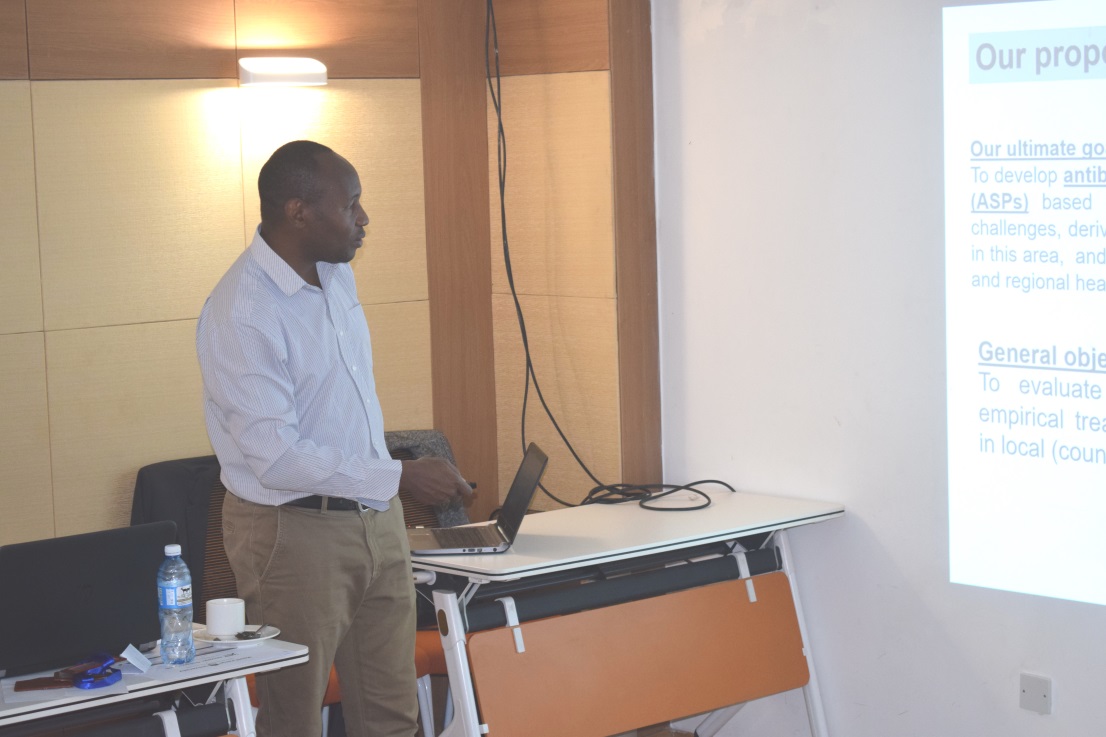
Dr Jesse Gitaka during the Nakuru Antibiotic Stewardship workshop at Ole Ken Hotel ,Nakuru
So far 3 trainings on ASCs have taken place in Nakuru, Kiambu and Bungoma. Formative assessment of the capability of the health facilities towards institution and sustenance of the ASCs will follow.
The ASC trainings attracted different cadres of healthcare workers, administrators and prescribers from the hospitals such as the Medical Superintendent, Consultants in charge of Medical and Surgical Wards, Nursing Officer in charge, Chief Laboratory Technologist (Microbiologist), Chief Pharmacist, and their deputies, and other members of the Infection Prevention Committee or the Therapeutics Committee.
The training workshops covered a variety of topics including epidemiology and science of antibiotic resistance, surveillance for antibiotic resistance control, proposed project and its design, case study of a functioning ASC in Kenya and ended with plenary discussions and way forward.
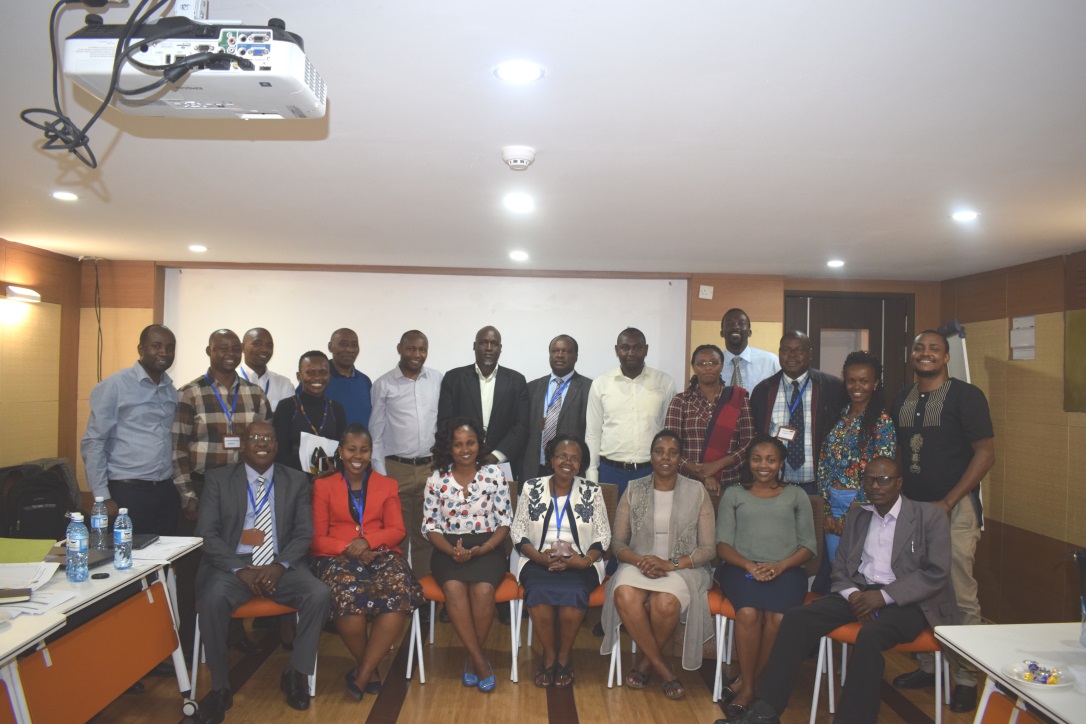
The Nakuru and Naivasha Antibiotic Stewardship Committee members and the trainers
Dr Moses Masika from the University of Nairobi, whose vast experience in the Kenyatta National Hospital’s (KNH) ASP is honourable, was a key speaker in the workshops. He brought out core elements of ASPs as applied in the KNH ASP. Dr Rosaline Kinuthia, a clinical pharmacist from KNH as well as an integral member of the KNH ASP also shared the ASP journey at KNH. The implementation of ASP at KNH, challenges notwithstanding, has been a fulfilling opportunity for her. As the sages so wisely put it: ‘a little stewardship is better than none’ and ‘if you cannot measure it you cannot improve it.’ Therefore in the same spirit, we forge to our niche in tackling the AMR menace.



